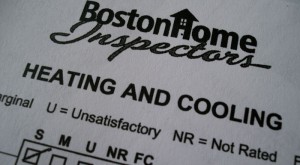While a Buyer’s Agent is prominent in driving a real estate transaction to close on behalf of their Buyer, any Buyer’s Agent worth their weight will set expectations with their client that a real estate transaction has its ups and downs – times of excitement, anticipation, surprise, and perhaps even some relief with closing. A Buyer’s Agent assists in quarterbacking the overall flow of a transaction, and a key expectation that needs to be set up front with Buyers is that no condo is perfect.
One of the “ups” of a transaction for a Buyer is immediately following the signing of an Offer to Purchase. Maybe there was a hard fought, but fair, negotiation that got the Buyer truly vested into the property, or perhaps it was an all cash transaction with little back and forth between Buyer and Seller. Regardless, following the excitement of having a signed contract, a Buyer needs to mentally prepare for the various steps in the transaction process that are soon to follow, one of those being a property inspection.
Accompanying almost all Offers to Purchase real estate in Boston is a contingency that allows the Buyer to, at their own expense, conduct a property inspection. A property inspection is one of several items of Buyer due diligence that is conducted between signing the Offer to Purchase, and execution of a Purchase and Sale Agreement.
A home inspection is typically performed by a Home Inspector that is licensed in the state of Massachusetts (see the Home Inspector Fact Sheet for more information about Home Inspectors in Massachusetts). It is beneficial for the Buyer to attend the home inspection in person, as this gives the Buyer the opportunity to be in the property for an extended period of time, and get a true feel for the ins and outs of the unit, and the common amenities of the building. While the Buyer is still riding that “high” of having a signed Offer on the unit and moving forward in the real estate transaction, the property inspection has the potential to put a damper on the situation.
The Property Inspector will more than likely generate a “punch list” of items (be that small or large) that need attention in the unit. Seeing a list of items that are “wrong” with a condo can oftentimes intimidate a Buyer, and can move the transaction into one of the “downs” that we talked about earlier. However, if expectations are set up front with a Buyer that no condo is perfect, seeing a list of items that need to be fixed may not be all that shocking. As well, there are multiple ways to respond to such a situation.
At this point in the transaction, all parties should be moving forward in good faith, so unless there are “deal breaker” items on the list, it’s in the best interest of everyone to try and work things out. Following the inspection, essentially, there is another round of negotiations that take place whereby the Buyer and Seller agree on a means to appropriately address and/or correct the punch list items – be that with immediate repair, or a credit at closing for instance.
A Buyer should feel comfortable giving the Seller an opportunity to respond to items that arise from a property inspection. Bear in mind, the Seller has taken the unit off the market, and all marketing activity for the property has been significantly dialed back. That said, the Seller, if faced with reasonable requests, will want to come to an amenable solution to the situation in order to see the transaction continue, rather than putting the unit back on the market after having lost viable “selling time”.
Armed with this information, and realistic expectations that no condo is perfect, a Buyer can more easily traverse some of the ups and downs that are an inevitable part of a real estate transaction.







